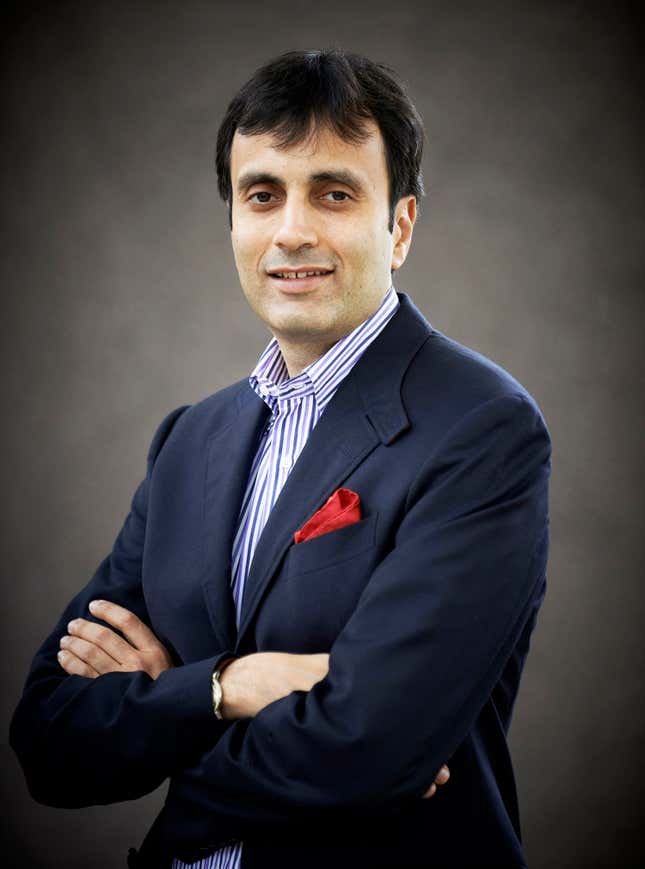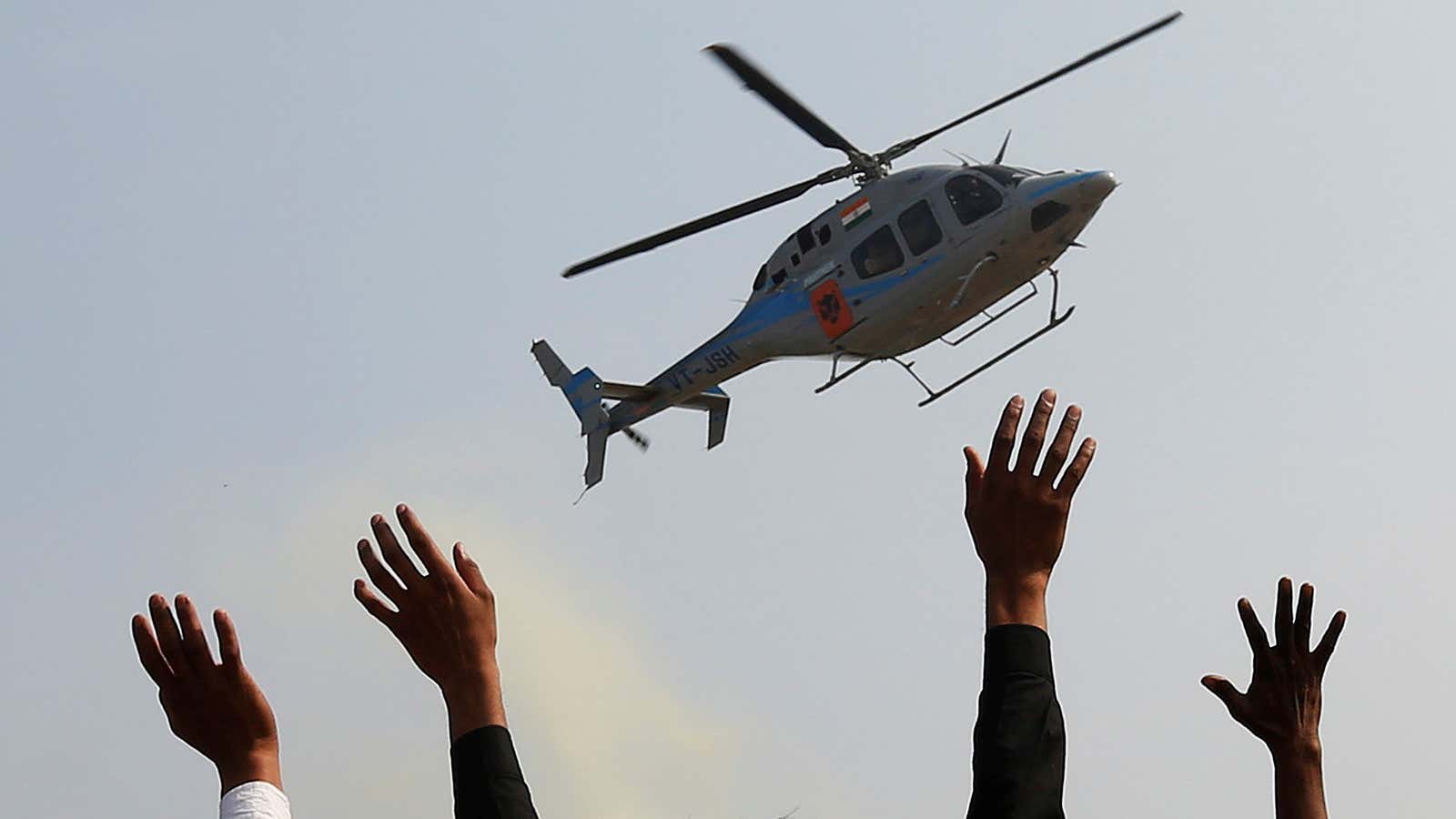India’s kicking up the heat and dust of national elections yet again.
Two key national political parties, the ruling Bharatiya Janata Party (BJP) and the Indian National Congress, and a clutch of strong regional outfits are out and about wooing voters. While some view these polls, expected to be held in April-May, as a verdict on prime minister Narendra Modi, who swept to power in 2014, some like bestselling author Ruchir Sharma refuse to be drawn into such a narrative.
“It is the heterogeneity of India…it is difficult for one person or party to dominate the country in such an overwhelming way,” Sharma, who recently concluded what he calls his 27th election trip of India, told Quartz in a phone interview. He has written his latest book, Democracy on the Road, based on his journeys through the country over the years.
Sharma plans to hit the road again in April: “The aim is to go out there with as much of an open mind than with preconceived notions.”
Edited excerpts from the interview:
Your new book seems to be more about the fragrance and colours of the country’s elections.
I want people to know that this book is a journey of India, it is not just a political essay on India. I’m so happy that you have zoned into that.
Is there a coherent picture that emerges from your journeys through the country?
Politically, the most important picture that emerges for me is the story of many Indias. I think a lot of the national media, the narrative in Delhi and the Hindi heartland is lost about this. The south of the country, for example, is very different from the north. The strain of Hindutva in the south is very different from the strain you find in the north.
What is this difference? Could you elaborate?

I think it (Hindutva) is soft in general (in south India). Despite the fact that Tamil Nadu and all are temple countries…very religious…the strain of Hindutva there is a lot more subtle, it’s not that firm, it’s a lot less strident. So the whole theme of the book is: to club it (India) in one way is a mistake that we still make. Like this whole rush to see it (elections), sort of, as a referendum on Modi…that’s an oversimplification of the elections. Of course, Modi’s an important character…(but) the response in Tamil Nadu is very different…it is “Modi who? Rahul who?”
This oversimplification is even more in the international media than in the national media.
Are you saying people aren’t going to vote just on Modi?
Not just this time, that is always the case. Even in 2014, the fact of the matter is that Modi got 31% of the national vote share. The seat outcome turned out to be large because of the divisions in the opposition. So even in what was arguably a mini-wave election, if you can call it that, the voting pattern was very different.
Looking at the Modi wave, do you think India’s reached a stage where people look beyond their local issues, castes, and identities when it comes to national elections?
I think it is as strong as ever. The same point…31% vote share is all that they (BJP) got…how can you draw a conclusion like that?
What were the primary issues that came up during your journeys?
My understanding is that this election is going to be less about issues, and more about coalitions. I think people still vote very heavily along caste lines. The issue is determined by what the caste base is and who they have decided to support. Things like demonetisation, GST (goods and services tax)…the upper castes would, sort of, either view it favourably or say that we need to give this more time; other castes, like Dalits or the Muslims were more against it, because that’s just not Modi’s constituency.
Do you see Modi coming back to power?
I made this statement last year when I saw that conventional wisdom had to be shaken up; I said the probability of Modi coming back is between 99% and 50%. The difference now is that conventional wisdom has now moved to 50%. Compared to a year ago when I sounded very bold, it isn’t very bold to say it now.
That’s how I end my book, saying that this is a great testament to Indian democracy. A year or two ago it seemed like we were headed for a one-party hegemony. The fact that we have such a competitive election right now is a celebration of Indian democracy.
Is Rahul Gandhi a force to reckon with yet?
He has clearly changed, we have seen his transformation. But a “force to reckon with,” I am not sure.
